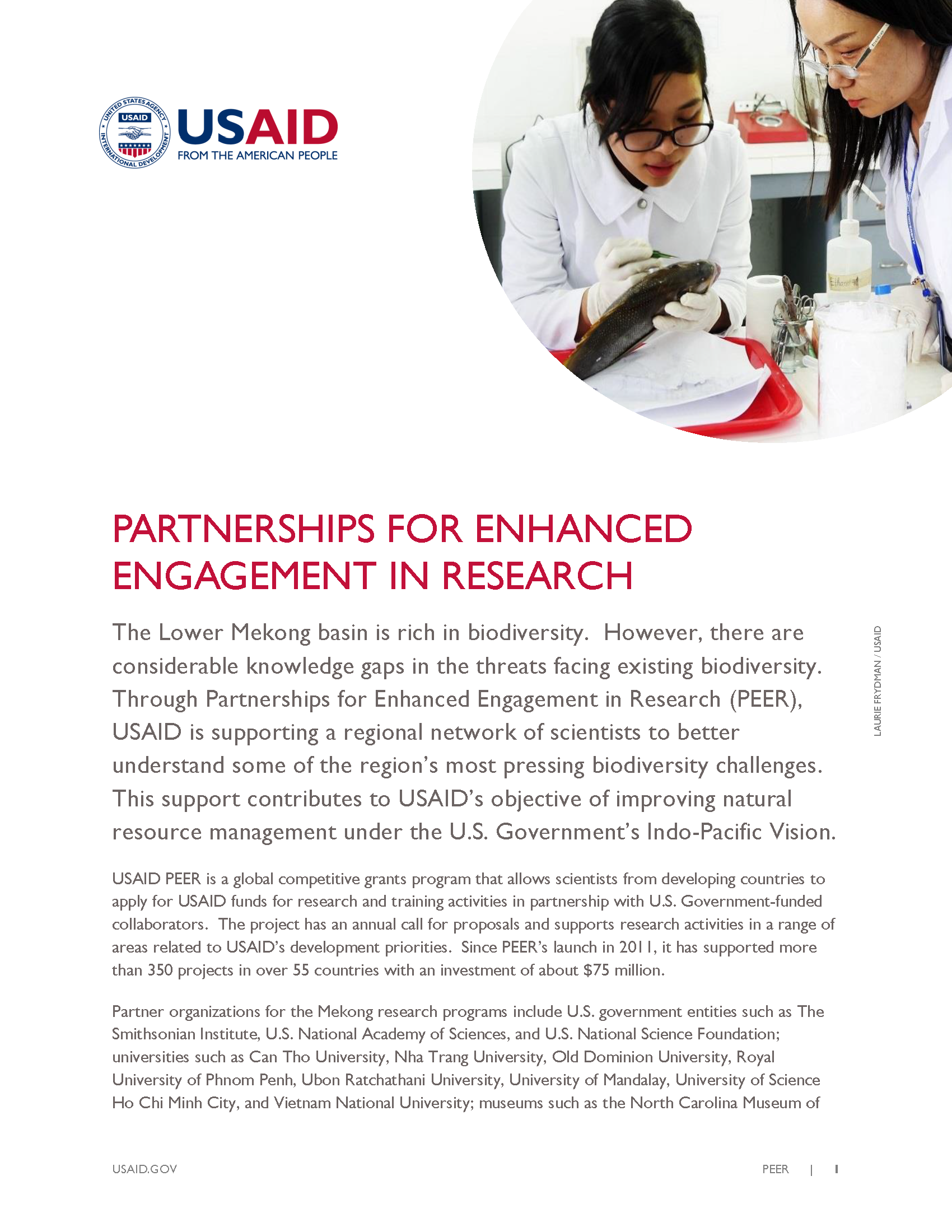Speeches Shim
Partnership for Enhanced Engagement in Research ![]() (pdf - 148k)
(pdf - 148k)
The Lower Mekong basin is rich in biodiversity. However, there are considerable knowledge gaps in the threats facing existing biodiversity. Through Partnerships for Enhanced Engagement in Research (PEER), USAID is supporting a regional network of scientists to better understand some of the region’s most pressing biodiversity challenges. This support contributes to USAID’s objective of improving natural resource management under the U.S. Government’s Indo-Pacific Vision.
USAID PEER is a global competitive grants program that allows scientists from developing countries to apply for USAID funds for research and training activities in partnership with U.S. Government-funded collaborators. The project has an annual call for proposals and supports research activities in a range of areas related to USAID’s development priorities. Since PEER’s launch in 2011, it has supported more than 350 projects in over 55 countries with an investment of about $75 million.
Partner organizations for the Mekong research programs include U.S. government entities such as The Smithsonian Institute, U.S. National Academy of Sciences, and U.S. National Science Foundation; universities such as Can Tho University, Nha Trang University, Old Dominion University, Royal University of Phnom Penh, Ubon Ratchathani University, University of Mandalay, University of Science Ho Chi Minh City, and Vietnam National University; museums such as the North Carolina Museum of Natural Sciences and the American Museum of Natural History; and other partners such as Inland Fisheries Research and Department Institute, Living Aquatic Resources Research Center, Mekong River Commission, and Spectrum.
IMPROVING MANAGEMENT OF MEKONG FISHERIES
The Mekong River is rich in biodiversity and critical to regional food security, but it is under threat. Four linked PEER research projects seek to understand the impacts of hydropower and climate change on Mekong fisheries and enable better fisheries management by characterizing genetic diversity and spatial structure. They are also establishing long-term monitoring of economically and ecologically important fish species in Cambodia, Laos, Myanmar, Thailand, and Vietnam.
EMPOWERING WOMEN SCIENTISTS
PEER projects address the cultural barriers that dissuade women from research careers by supporting a network of women scientists studying the diversity, distribution, and conservation of reptiles and amphibians in the Mekong, as well as the impacts of human activities on these species in Laos, Thailand and Vietnam. In the past two years, this network has discovered two new species of frogs and published their work in prestigious international journals.
IMPACTS AND RESULTS
- Established the first genetic biodiversity research network for the Mekong River Basin, with the participants now publishing joint papers with their U.S. collaborators
- Supported the International Conference on Conservation Genetics in the Mekong River Basin, with over 70 participants from 10 countries discussing conservation genetics and resource management in the Mekong River Basin
- Supported research to document fish migration of representative species of the Laos Se Kong River, its tributaries, and the Mekong River using genetic mapping techniques


Comment
Make a general inquiry or suggest an improvement.